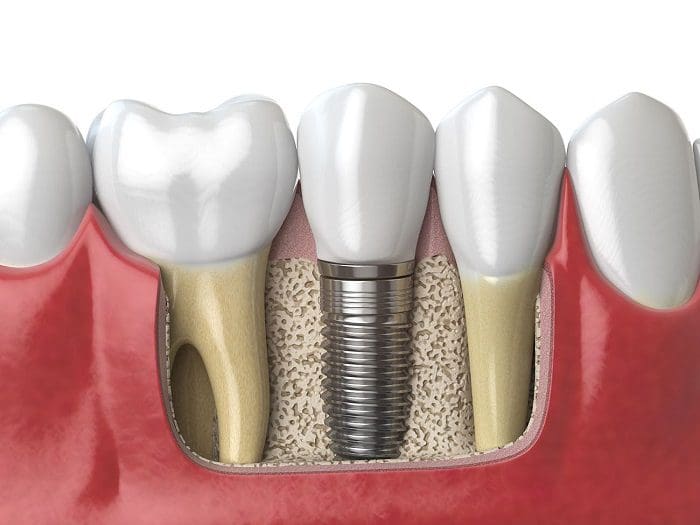Missing teeth can prove severely detrimental to your dental health, smile appearance, and oral function. Fortunately, your dentist can help you restore your smile after tooth loss with fixed oral devices called dental implants.
These tools can enhance the look, ability, and well-being of your smile for twenty years or longer. But you might worry about how fixed dental fixtures can impact the rest of your smile and potential dental work.
You can still obtain the dental services you need even with implants within your smile. But your dentist may need to adjust their approach to your care. Read on to learn more about the oral health care you can receive after replacing teeth with dental implants.

Can You Whiten a Dental Implant?
Over time, your teeth may start to turn yellow, form dark stains, or grow dull in color. Dental discoloration may hurt your self-esteem, but your dentist offers teeth whitening treatment that uses bleaching agents to lift dental stains and enhance the color of your smile.
However, this whitening solution only addresses discoloration in your natural tooth enamel. The bleaching agents will not affect the ceramic material of the dental prosthetics in your implant. Fortunately, your prosthetic teeth are made to resist staining in the first place.
Your dentist can still whiten teeth around your implant, applying bleaching gel where needed. But if you want to brighten the color of your implant, you will need to replace the entire prosthetic tooth. Learn more by consulting with your cosmetic dentist.
Can I Straighten My Smile After Implant Dentistry?
If your teeth seem crooked or you see spacing concerns in your smile, you can talk to your dentist to find a way to straighten your teeth. However, you should seek teeth straightening solutions prior to replacing missing teeth with dental implants.
A dental implant involves placing a titanium post anchor into the jaw where it will fuse with the bone there to support dental prosthetics. Once this fusion process is complete, the implant will not move. So Invisalign and other teeth-straightening treatments cannot shift this device.
Sometimes an orthodontist can work around your implant to amend bite problems with braces. But usually, you should seek to align your teeth before you receive this implant.
How Can Dentists Treat Cavities Near a Dental Implant?
A majority of us will experience at least one cavity in our lives. These early types of tooth decay develop when natural oral bacteria penetrate weak spots in the enamel to eat a hole in the tooth’s surface.
A dentist must drill away the decayed portion of the tooth to get rid of the cavity. Then they fill the resulting hole with composite resin to restore the tooth’s structure.
A dental implant will not develop a cavity, but the surrounding natural teeth can. If an implant blocks the dentist’s access to the cavity, they may need to remove the implant to treat it. But they can place the dental prosthetic back in place after the treatment.
